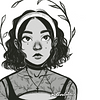Take a photo of a barcode or cover
challenging
dark
emotional
sad
tense
medium-paced
Plot or Character Driven:
Character
Strong character development:
No
Loveable characters:
Complicated
Diverse cast of characters:
No
Flaws of characters a main focus:
Yes
dark
emotional
sad
medium-paced
Plot or Character Driven:
A mix
Strong character development:
Complicated
Loveable characters:
No
Diverse cast of characters:
Complicated
Flaws of characters a main focus:
Complicated
There are some beautifully articulated, and heartwrenching moments in this book which provides a heavy feel for the lives lived, and lost, in Kabul under the Talibans reign. I struggled to connect with some of the characters, though perhaps that is because I had The Kite Runner and a Thousand Splendid Sun's in mind, drawing a comparison that just can't be drawn.
challenging
dark
emotional
sad
tense
medium-paced
Plot or Character Driven:
Character
Strong character development:
Complicated
Loveable characters:
Complicated
Diverse cast of characters:
Complicated
Flaws of characters a main focus:
Complicated
challenging
Devastatingly beautiful.
"We've already been killed, all of us. It happened so long ago, we've forgotten it."
"We've already been killed, all of us. It happened so long ago, we've forgotten it."
3⭐️
« La tragédie fondamentale des hommes vient
du fait que nul ne peut survivre à ses vœux les plus pieux, qui sont de surcroît la raison essentielle de son infortune. Le monde n’est-il pas la faillite des mortels, la preuve monstrueuse de leur inconsistance? »
C’est une vérité universelle reconnue que la plume de Khadra ne trahit jamais de sa fluidité et encore moins de sa richesse.
Même si le récit recèle de nombreuses scènes assez explicites au vu de leur violence et relativement difficiles à lire. J’ai malgré tout apprécié ma lecture, dommage que je n’ai été captivé à proprement parler par l’histoire que vers la toute fin.
« Je ne les laisserai pas vous tuer.
— Nous avons tous été tués. Il y a si longtemps que
nous l’avons oublié »
« La tragédie fondamentale des hommes vient
du fait que nul ne peut survivre à ses vœux les plus pieux, qui sont de surcroît la raison essentielle de son infortune. Le monde n’est-il pas la faillite des mortels, la preuve monstrueuse de leur inconsistance? »
C’est une vérité universelle reconnue que la plume de Khadra ne trahit jamais de sa fluidité et encore moins de sa richesse.
Même si le récit recèle de nombreuses scènes assez explicites au vu de leur violence et relativement difficiles à lire. J’ai malgré tout apprécié ma lecture, dommage que je n’ai été captivé à proprement parler par l’histoire que vers la toute fin.
« Je ne les laisserai pas vous tuer.
— Nous avons tous été tués. Il y a si longtemps que
nous l’avons oublié »
dark
emotional
sad
medium-paced
Plot or Character Driven:
Character
Strong character development:
No
Loveable characters:
No
Diverse cast of characters:
No
Flaws of characters a main focus:
Complicated
lovely prose. but i can see why this was very popular when it came out, directly post 9/11 (not a compliment)
challenging
emotional
medium-paced
This short novel follows two couples in a Taliban-run Kabul. Mohsen comes from a family of wealthy shopkeepers; his wife, Zunaira, is a beautiful and brilliant teacher. The Taliban has destroyed their business and home, and Zunaira is no longer allowed to work. In contrast, we see Atiq, a jailer who has adopted the Taliban teachings, and his faithful and loving wife, Musarrat, who is dying of a debilitating illness.
Khadra writes with poetic detail about a city which the residents no longer recognize as their own. Frightened, confused, unsure, despairing, they struggle to make sense of a culture that is at once familiar and foreign:
“…hundreds of little kids … many barely old enough to walk, and all silently braiding the stout rope they’ll use, someday soon, to lynch their country’s last hope of salvation.”
“We had some privileges that we didn’t know how to defend, and so we forfeited them to the apprentice mullahs….It would be marvelous to stand in front of a shop window, leaning against you, or to sit at a table, just the two of us, chatting away or making fantastic plans. But that’s no longer possible.”
”How could he have believed that lovers’ promenades were still possible in a city that looks like a hospice for the moribund, overrun with repellent fanatics whose eyes stare out of the dark backward and abysm of time? How could he have lost sight of the horrors that punctuate daily life in a nation so contemptible its official language is the whip?”
“You’re happy, but you don’t know it. All your life, you’ve only listened to other people – your teachers and your holy men, your leaders and your demons – and they’ve spoken to you of nothing but wrongs and bitterness and war.”
There are some startlingly brutal images contained in this small volume. This is a tragedy, and things will not end well for all these characters. But I feel that I have gained a little understanding of the situation by reading this novel, and for that I’m grateful.
Khadra writes with poetic detail about a city which the residents no longer recognize as their own. Frightened, confused, unsure, despairing, they struggle to make sense of a culture that is at once familiar and foreign:
“…hundreds of little kids … many barely old enough to walk, and all silently braiding the stout rope they’ll use, someday soon, to lynch their country’s last hope of salvation.”
“We had some privileges that we didn’t know how to defend, and so we forfeited them to the apprentice mullahs….It would be marvelous to stand in front of a shop window, leaning against you, or to sit at a table, just the two of us, chatting away or making fantastic plans. But that’s no longer possible.”
”How could he have believed that lovers’ promenades were still possible in a city that looks like a hospice for the moribund, overrun with repellent fanatics whose eyes stare out of the dark backward and abysm of time? How could he have lost sight of the horrors that punctuate daily life in a nation so contemptible its official language is the whip?”
“You’re happy, but you don’t know it. All your life, you’ve only listened to other people – your teachers and your holy men, your leaders and your demons – and they’ve spoken to you of nothing but wrongs and bitterness and war.”
There are some startlingly brutal images contained in this small volume. This is a tragedy, and things will not end well for all these characters. But I feel that I have gained a little understanding of the situation by reading this novel, and for that I’m grateful.
Como denuncia a la situación que se vivía en Kabul durante el mandato de los talibanes está bastante bien, pero como historia deja bastante que desear. No llegué a empatizar con los personajes y se me hizo bastante engorroso acabar de leerlo, ¡y eso que solo tiene 170 páginas es la edición española! Creo que el escritor (Yasmina Khadra es un pseudónimo que utiliza) intentó algo demasiado pretencioso.
Para conocer mejor los horrores vividos en el Afganistán de esa época recomiendo leer a otros autores.
Para conocer mejor los horrores vividos en el Afganistán de esa época recomiendo leer a otros autores.





